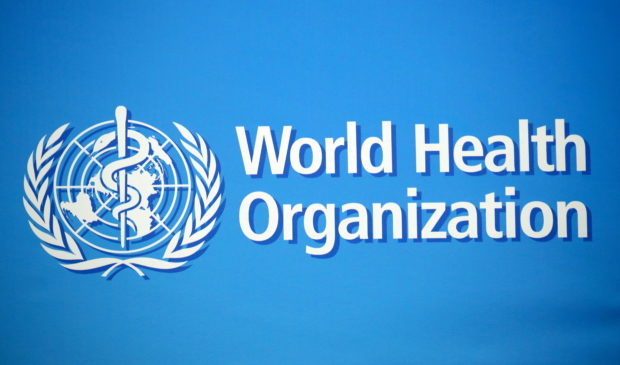
A logo is pictured at the World Health Organization (WHO) building in Geneva, Switzerland, Feb. 2, 2020. (File photo from REUTERS)
The World Health Organization (WHO) said on Wednesday, Aug. 11, that a clinical trial in 52 countries would study three anti-inflammatory drugs as potential treatments for COVID-19 patients.
“‘Solidarity PLUS’ will test three drugs, Artesunate, a treatment for severe Malaria, Imatinib, a drug for certain cancers and Infliximab, a treatment for immune system disorders such as Crohn’s Disease,” WHO director-general, Tedros Adhanom Ghebreyesus told a news conference.
So far, only corticosteroids have been proven effective against severe and critical COVID-19.
Co-leads of the research and development blueprint at WHO, Marie-Pierre Preziosi, said the drugs have already been shipped or are on their way to more than 10 countries.
Her counterpart, Ana Maria Henao Restrepo said she was hopeful that this time, the WHO will be able to recruit more patients than in the initial trial.
The original Solidarity trial last year found that all four treatments evaluated – remdesivir, hydroxychloroquine, lopinavir/ritonavir, and interferon — had little or no effect in helping COVID patients.
The WHO said artesunate, produced by Ipca, is used to treat malaria. In the trial, it will be administered intravenously for seven days, using the standard dose recommended for the treatment of severe malaria.
Imatinib, produced by Novartis, is used to treat certain cancers. In the trial, it will be administered orally, once daily, for 14 days.
Infliximab, produced by Johnson and Johnson, is used to treat diseases of the immune system. In the trial, it will be administered intravenously as a single dose.